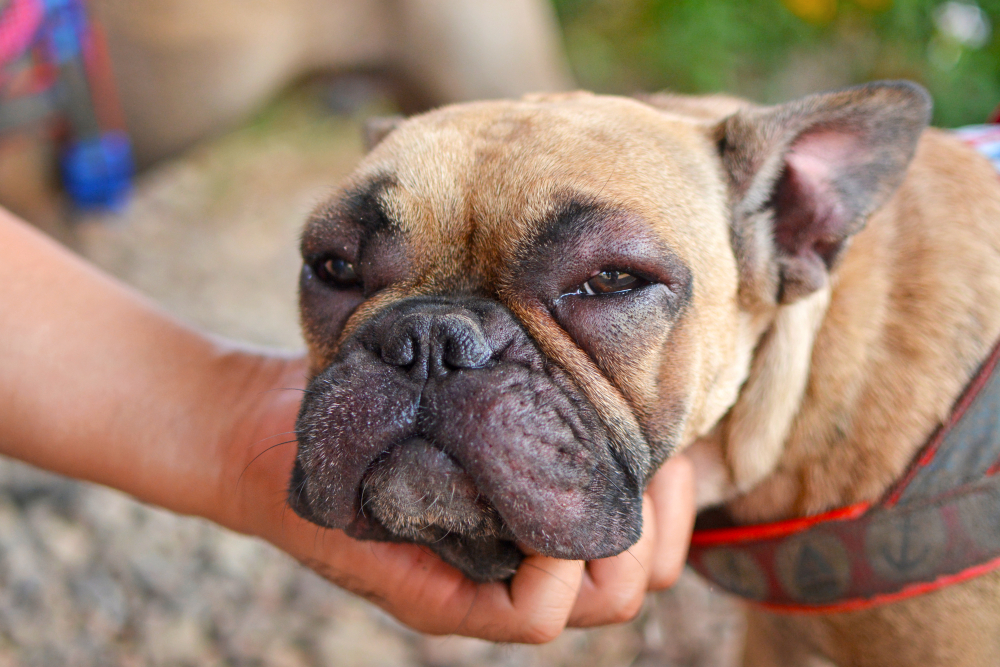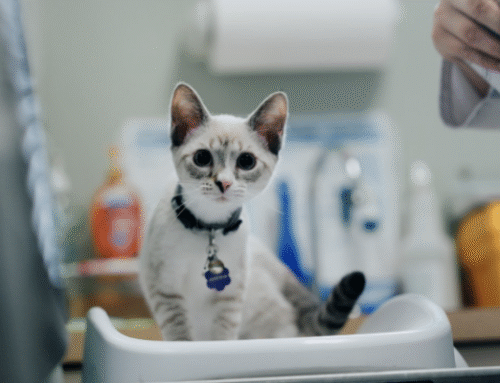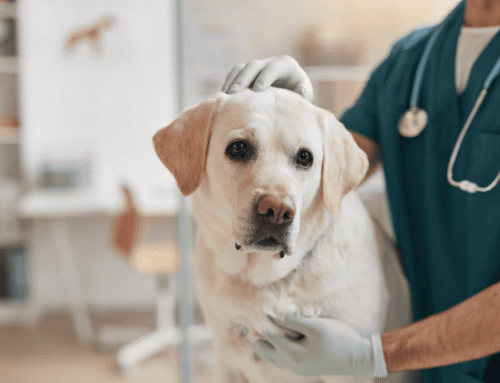Allergic reactions are common in pets and can cause sudden changes and signs that alarm pet owners. But, you should not panic. The best way to help a pet experiencing an allergic reaction is to remain calm, assess the situation, and then seek veterinary care in an appropriate time frame. To help pet owners understand the difference between a mild or serious reaction and where to go if their pet needs help, the Safe Harbor Animal Hospital team offers this guide to allergic reactions in pets.
What is an allergic reaction in pets?
Allergic reactions in pets occur when the immune system overreacts to a foreign substance, which may be harmless (e.g., pollen or food) or potentially dangerous (e.g., a chemical, drug, or insect bite). Allergic reactions occur in different forms and are mediated by different cell types, resulting in different durations and chronicity patterns. Typical “allergies” are the result of a chronic, delayed hypersensitivity type that often causes skin or ear inflammation and chronic infections in pets. Acute allergic reactions are an immediate hypersensitivity type that causes slightly different, sudden signs.
What are allergic reaction signs in pets?
Acute allergic reactions present similarly in most affected pets. Some pets present with all signs, while others may have only a few. Severity can range from mild to severe, depending on the number of previous exposures and the amount of substance the pet encounters. Typical signs can include:
- Facial swelling
- Hives (i.e., red bumps) throughout the body
- Itching
- Vomiting or diarrhea
- Fever
Can an allergic reaction in pets be life-threatening?
Like people, pets can experience a severe form of allergic reaction called anaphylaxis. Although rare, anaphylaxis is life-threatening and requires immediate intervention to reverse the process. The most common triggers are vaccines and drugs administered via injection, but insect bites, food, or other substances are also possible causes.
Anaphylaxis causes many of the same typical allergic reaction signs but also includes systemic shock signs caused by blood vessels dilating and blood abnormally pooling in major body organs. Signs may include:
- Sudden onset of vomiting or diarrhea, often with blood
- Difficulty breathing
- Pale or blue gums
- Collapse
- Seizures
- Death
Should I seek treatment for my pet’s allergic reaction?
YES! Any pet experiencing an allergic reaction needs veterinary attention.
Where should I seek treatment for my pet’s allergic reaction?
If your pet shows typical allergic reaction signs, such as facial swelling or hives, contact our team to schedule a same-day visit, or take your pet to a local urgent care facility for same-day care. Your pet needs treatment to improve their comfort and prevent the reaction from progressing, but the situation is not an immediate emergency.
However, if you think your pet could be experiencing anaphylaxis, seek immediate veterinary care at the nearest facility. Thankfully, an anaphylactic reaction mostly occurs in pets who have just been vaccinated or administered a drug in their veterinarian’s office and the pet can be quickly treated.
How do I prevent an allergic reaction from recurring in my pet?
Preventing allergic reactions is likely impossible for most pets, because you cannot easily control their substance exposure, and often you cannot identify the causative agent. If your pet frequently experiences allergic reaction relapses, they may benefit from allergy testing and desensitization therapy or active allergen avoidance. Our team may recommend specific procedures for future veterinary visits to prevent an issue in pets with a history of serious reactions but require the vaccine or drug for health or lifestyle reasons.
Allergies are a common phenomenon among pets of all ages, breeds, and types. Dogs and cats who develop chronic allergic diseases are more likely to suffer from acute reactions, but any pet may be affected by a bee sting, chemical, or other unexpected event. Use our Safe Harbor Animal Hospital team’s guide to remain calm and get your pet the help they need.
Call or book online if your pet has ongoing allergy issues, or for same-day allergic reaction care. Receive after-hours advice from our emergency support phone service, or head to the nearest local emergency facility for urgent help.
Learn more about our animal hospital group and services offered at Animal Hospitals of the Lowcountry, or visit our sister hospitals—Shuler Veterinary Clinic and Mount Pleasant Animal Hospital—online.









Leave A Comment